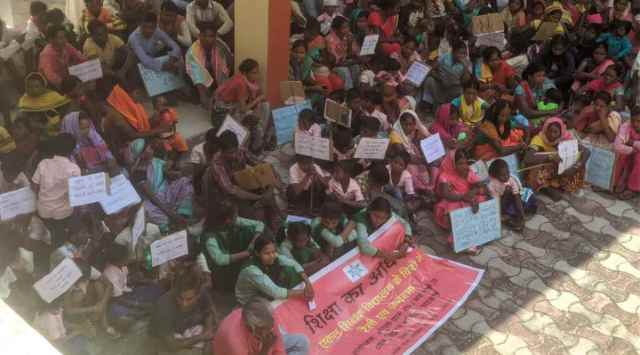Protest against new schools: Govt calls associations for meeting today
The associations also continue to demand to run Gyan Shakti Residential Schools, Gyan Shakti Tribal Residential School and Gyan Setu Day Schools in government schools and to rope in grant-in-aid organisations if required.
 A review committee constituted on April 10 with protesting associations and senior education officials was to submit its report to the state government on Monday. However, no consensus could be drawn during several meetings held by the committee. (Representational/File)
A review committee constituted on April 10 with protesting associations and senior education officials was to submit its report to the state government on Monday. However, no consensus could be drawn during several meetings held by the committee. (Representational/File) Various school associations protesting against Gujarat government’s Gyan Setu Day Schools, Gyan Shakti Residential School, Gyan Shakti Tribal Residential Schools and Raksha Shakti Residential Schools have been called for a meeting with the government on Tuesday.
A review committee constituted on April 10 with protesting associations and senior education officials was to submit its report to the state government on Monday. However, no consensus could be drawn during several meetings held by the committee.
On Monday, the state government invited the representatives for a meeting in Gandhinagar at 11 am Tuesday, confirmed a senior education official.
In the meantime, these associations have submitted their individual recommendations to the committee head AJ Shah, Gujarat Secondary and Higher Secondary Education Board (GSHSEB) chairman.
The recommendations with “no objections against the Raksha Shakti Schools” suggest separate Gyan Shakti Residential Schools for girls and boys, and reducing the capacity of students from 2,000 to 500.
The associations also continue to demand to run Gyan Shakti Residential Schools, Gyan Shakti Tribal Residential School and Gyan Setu Day Schools in government schools and to rope in grant-in-aid organisations if required.
The committee has also proposed to bring parity in these PPP mode schools and the existing government and grant-in-aid schools with a grant of Rs 5,000 per student, regular appointments of teaching and non-teaching staff, limited number of classroom strength, school recognition norms, safety against surplus teachers, teachers not to be given non-academic work, staff appointment for sports, arts and other vocations.
The Gujarat government has announced to start Gyan Setu Day Schools, Gyan Shakti Residential School, Gyan Shakti Tribal Residential Schools and Raksha Shakti Residential Schools, admitting students from Class 6 on a public private partnership in the upcoming academic session of 2023-’24.
The state government constituted a committee to resolve the concerns raised by these bodies against the four types of schools.







